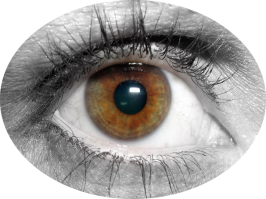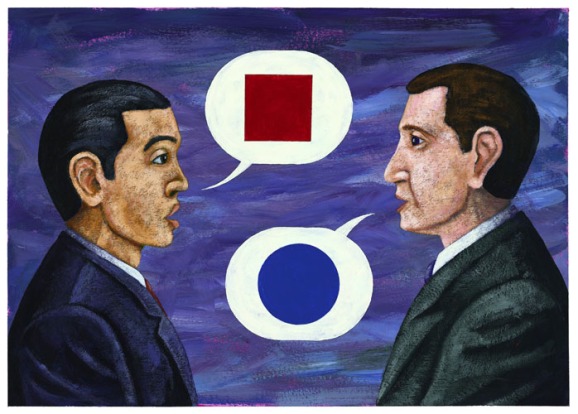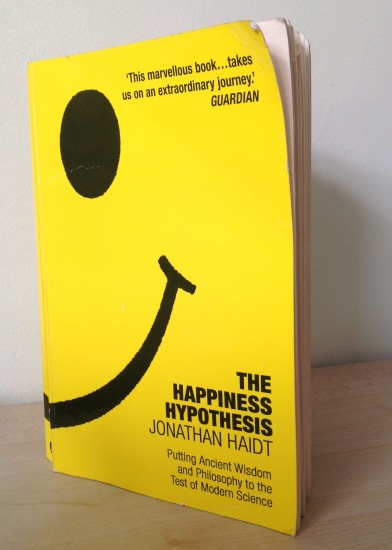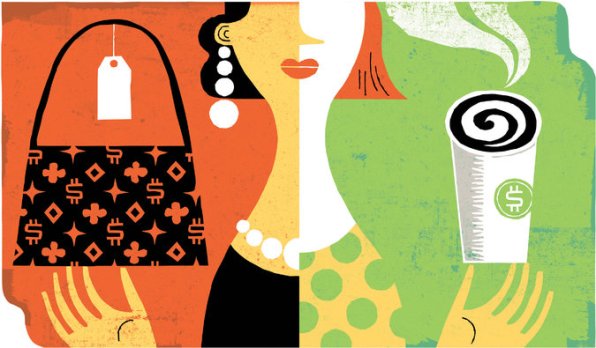A definite pattern is starting to emerge in my book-reading recently. I’ll read and enjoy a few on my commute, then take some time off work and get fully engrossed in one. The last time it happened was when I read Sapiens, a book I’ve not stopped talking about since.
So either I need to be better at paying attention to books I’m reading on the train, or I need to go on more holidays. I’ll focus on the latter, and if that doesn’t work out, I’ll try give the former a go…
Whether holiday-induced or not, The Happiness Hypothesis is a brilliantly mind-stretching read, which I seem to have taken far too long to discover (it turns out it was released in 2006…). Perhaps the biggest compliment I can pay it is that, despite all of the psychology and behavioural thinking that has emerged in the last decade, this book still seems fresh in its thinking.
Across the small questions of morality, religion, knowledge, community, and adversity, these are the bits that caught my eye…

‘Events in the world only affect us through our interpretations of them. So if we can control our interpretations, we can control our world.’
On our behavioural biases…
- We all succumb to ‘Motivated Reasoning’. People are motivated to reach a particular conclusion, which leads to a one-sided search for supporting evidence
- In a study of 1 millions students, 70% thought there were above average on leadership, but only 2% thought they were below. Everyone can find some skill that might be construed as related to leadership, then find some piece of evidence that supports that skill.
- To challenge our biases, write down the weaknesses in your own arguments
On the pursuit of happiness
- Richard Davidson tells us there’s two types of positive affect:
- ‘Pre-goal attainment positive affect’ – the pleasurable feeling as you make progress towards a goal
- ‘Post-goal attainment positive affect’ – arises after you have achieved something you want
- Pleasure comes more from making progress towards goals than in achieving them
- We get more joy from inconspicuous consumption:
- Conspicuous consumption = things that are visible to others and that are taken as markers of a person’s relative success
- Inconspicuous consumption – goods and services that are valued or themselves, consumed privately, not bought for the purpose of achieving status
Credit: Tim Cook
On knowledge & wisdom
- Knowledge comes in two main forms:
- Explicit – the facts you know and can report – taught directly in schools.
- Tacit – Knowing ‘how’ rather than knowing ‘that’, acquired without direct help from others, rallied to goals that a person values.
- According to Robert Sternberg, wisdom comes from tacit knowledge
- The wise are able to see things from others’ point of view, appreciate shades of grey, and then choose or advise a course of action that works out best for everyone in the long run
- Wise people are able to balance three responses to situations:
- Adaptation (changing to fit the environment)
- Shaping (changing the environment)
- Selection (choosing to move to a new environment)

On choosing a meaningful path
- Sheldon and Kasser show that people who are mentally healthy and happy have a higher degree of ‘vertical coherence’ among their goals – that is, higher-level (long-term) goals and lower-level (immediate) goals all fit together all so that purposing one’s short-term goals advances the pursuit of their long-term goals
- Most people approach what they do in one of three ways:
- Job – do it for the money
- Career – goals of advancement, promotion, prestige
- Calling – contributing to a greater good playing a role in a larger enterprise of obvious worth to you
- We work in multi-level systems of physical, psychological, and sociocultural. People gain a sense of meaning when their lives cohere across thee three levels of their existence
Definitely one to pick up and read if, like me, you’re roughly a decade behind on your Amazon Wishlist…

I really hope you enjoyed this article. If you did, I’d love you to subscribe to my blog at johnjsills.com/subscribe to get new thoughts sent to you on an infrequent basis, and find me on twitter @johnJsills.


Definitely some interesting key points you’ve pointed out there that resonate with me. Thank you for sharing.